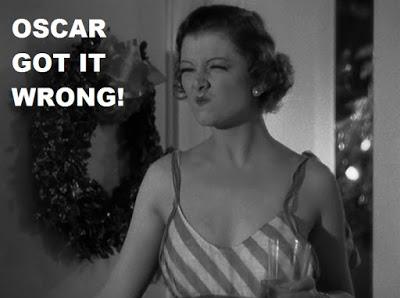Anthony Adverse
Dodsworth
The Great Ziegfeld (winner)
Libeled Lady
Mr. Deeds Goes to Town
Romeo and Juliet
San Francisco
The Story of Louis Pasteur
A Tale of Two Cities
Three Smart Girls
What’s Missing
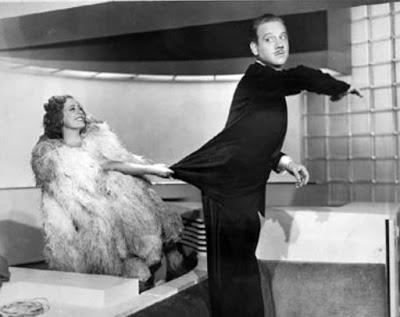
This is another one of those years where there are a lot of nominations, and since it’s an early year in film history, it’s one were I’ve seen far fewer than I probably should have. Still, there are a number of changes I’d love to make. While I’m not a huge fan of My Man Godfrey, I’m a little surprised it wasn’t nominated. I can say something similar about Swing Time, although I like the film a lot more. Sequels were certainly a thing in 1936, and After the Thin Man is one of the better ones from this year. In these early years, foreign language films always had trouble getting noticed, which explains the absence of The Story of a Cheat. Artistic value aside, it would have been a longshot for the Academy to recognize an essentially silent film like Modern Times. The move I’d love to see here, though, is the little-known Theodora Goes Wild, which is absolutely a charmer.
Weeding through the Nominees
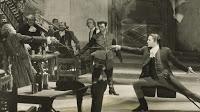
10. Anthony Adverse is one of those movies that I look at and wonder what the Academy was thinking. It’s not that I think it’s a bad movie for modern times; I have trouble believing this was seen as a quality movie in 1936. It’s overlong, overcomplicated, shows scenes that could easily be handled with a title card, and relies on coincidences of Dickensian proportions. The only thing I genuinely liked about it is that there is a character named Denis Moore. If you are at all a Monty Python fan, you know exactly why that is funny.
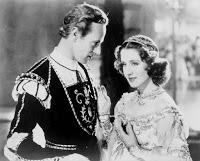
9. In the best of worlds, I’m not a fan of Romeo and Juliet. I don’t like the story. One of the problems with staging it is in finding believable people to play the title characters. You want them to be good in the roles, and young enough to be in those roles. In this case, we have the bland 43-year-old Leslie Howard playing the 17-year-old Romeo and the 34-year-old Norma Shearer playing the 13-year-old Juliet. With the best will in the world, there’s absolutely no way that is ever going to work. And it doesn’t.
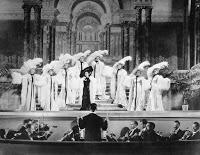
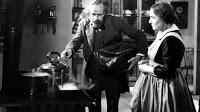
7. Why, precisely, was The Story of Louis Pasteur nominated for Best Picture? I think this is a case of politics in no small part. Paul Muni was snubbed in 1935 for Best Actor, not getting a nomination but getting huge support as a write-in candidate. Because of that, he won for this, and perhaps the Academy was under the impression that the only way to legitimize Muni’s Oscar was to nominate the film itself. It’s oddly short and ignores the main contribution of Pasteur’s life. I genuinely don’t understand it.
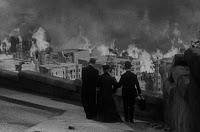
6. It would be possible to suggest that my problem with San Francisco is the predictable trope of the nasty, unfeeling atheist character falling to his knees, thanking God, and reforming himself by the end of the film. That’s partly true, but it’s because that rings so hollow in this film that I simply don’t buy it. There are aspects of this film—Clark Gable playing a rogue—that are fun, but the music is operatic and annoying, and the part of the film worth seeing, the Great San Francisco Earthquake, takes forever to get to.
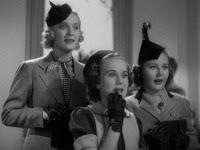
5. I remembered that Three Smart Girls was the film that made Deanna Durbin a star and that because of that it involved musical numbers. That’s literally all I remembered about it until I went back and looked at my review. That this managed to still get to 5th place on this list says a great deal about the movies that were nominated for Best Picture in 1936. This is a harmless bit of fluff and Deanna Durbin was a charming actress who managed to leave Hollywood on her own terms. It’s not bad; it’s just not memorable.
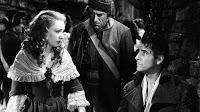
4. I’ll say something similar about A Tale of Two Cities making it all the way to fourth place. It’s not that I dislike this movie or the story, but that I have never been a huge fan of Charles Dickens. He depended entirely on coincidence and it’s clear that he was paid by the word. Anyway, this is a pretty good story and it’s nicely acted all the way through. I also, surprise, surprise, like the way this story ends, and the movie nails the ending with just the right amount of tragedy and pathos. This is the first movie on this list where I wholly agree with the nomination.
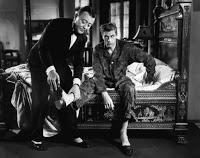
3. Mr. Deeds Goes to Town is so clearly and obviously a Frank Capra movie. It features both that which makes his movies work and that which makes his movies fail. It’s corny and sappy, and it works despite and because of this. My problem with Capra is that a little of him goes a long, long way. There’s always a chance that you’ll leave a Capra film as a diabetic. And yet it all works for some reason and it’s easy to walk away from this film with a smile and whistling a happy tune.
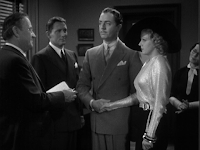
2. Libeled Lady is a film that I expected to be sort of a proto-noir. It’s not; it’s a pure screwball comedy, and it’s exactly what a screwball should be. It’s one of those rare movies that was nominated for Best Picture and nothing else, and that’s a shame, because it certainly could have been up for a few other awards without raising an eyebrow. Libeled Lady still works as a comedy and still works as a movie. It’s a pure pleasure to watch it, and of the nominations, it’s probably the one I’d most enjoy rewatching. But while it might be the one I enjoyed the most, it’s not what I’d call the best movie.
My Choice
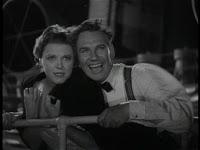
1. My winner is Dodsworth for one simple reason. This is a movie that comes from the absolute heart of the Great Depression, a time when pretty much everyone was desperate and broke. And here we have a movie (just like many of the movies of the time) with main characters who are fabulously wealthy dealing with relationship problems…and it works completely. Fifteen minutes into watching this, I was completely hooked and completely invested in the story. That’s a hard sell for me, and yet I went with it completely. It’s my clear choice because it works despite every indication that it shouldn’t.
Final Analysis
